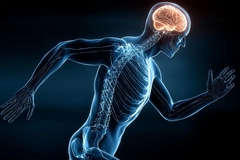
- Industry news
Industry news
Trending now
- Category news
- Reports
Trending now
- Key trends
Trending now
- Multimedia
Multimedia
Trending now
- Journal
- Events
Trending now
- Suppliers
Suppliers
Trending now
- Home
- Industry news
Industry news
Trending now
- Category news
- Reports
Trending now
- Key trends
Trending now
- Multimedia
Multimedia
Trending now
- Events
Trending now
- Suppliers
Suppliers
Trending now
Vitamin D supplementation ineffective for IBS symptoms, finds study

02 Aug 2021 --- Vitamin D supplementation does not relieve painful Irritable Bowel Syndrome (IBS) symptoms, according to research from the University of Sheffield, UK.
IBS is a chronic and sometimes severe ailment that affects over 10 percent of the UK population and costs the NHS more than £11 million (US$ 17 million) each year. Stomach cramps, bloating, diarrhea and constipation are all indications of this bowel disorder.
In 2012, a Sheffield study team was the first to suggest a relationship between IBS and low vitamin D levels, and the topic has been closely investigated since then.
“There has been interest from researchers and from patient groups in the potential of high dose vitamin D to alleviate symptoms of IBS, but there haven't been many controlled trials in this area,” says Liz Williams, co-author of the study and senior lecturer in human nutrition at the University of Sheffield.Vitamin D supplementation was found to be ineffective in the treatment of IBS symptoms.
While the study showed that supplementing vitamin D at a safe dose did not reduce the severity of IBS symptoms, supplementation did correct deficiencies in those people who were found to have poor vitamin D status. “This is important for other aspects such as bone and muscle health,” says Williams.
IBS in focus
Scientists from the university’s department of oncology and metabolism worked with BetterYou, a health supplement firm, to conduct trials on people who have a chronic digestive problem.
The study findings were published in the European Journal of Nutrition. Participants improved their vitamin D status using vitamin D3 oral spray supplementation over a twelve-week trial.
For some, IBS symptoms significantly impact quality of life, creating shame and leading to many people living with the condition untreated, resulting in mental health issues.
“As it is estimated that between 5 and 15 percent of the population could be living with IBS it is important we continue with research to find new ways to diagnose, treat and understand the impact of IBS on the population,” says Bernard Corfe, lead author and professor of human nutrition and health at Newcastle University.
Dietary and lifestyle changes may cause low vitamin D levels in some people with severe IBS, Corfe notes.
“Some may feel due to the severity of their symptoms that they limit their outdoor activities due to the anxiety their symptoms can cause, or alter their diet to avoid certain foods triggering their symptoms.” [800x800].jpg) Some people with IBS go untreated due to the anxiety their symptoms might bring.
Some people with IBS go untreated due to the anxiety their symptoms might bring.
“Unfortunately, all of these coping mechanisms can be detrimental to overall health and well-being and reduce exposure to valuable sources of vitamin D.”
IBS and gut health
Although little is known about why and how the debilitating condition develops, and there is presently no cure for IBS, more research is being conducted to find better ways to help and manage people who suffer from it.
“There is a range of management strategies that people living with IBS can seek help with from their GP, but because of the heterogeneity of the syndrome, managing IBS can be trial and error for each patient,” Corfe states.
In this space, Chr. Hansen spotlighted a study finding that bacterial gut imbalances play a role in the physiological changes linked with IBS.
Meanwhile, colostrum-based functional foods are highlighted by PanTheryx for gut health and immunity.
By Nicole Kerr










